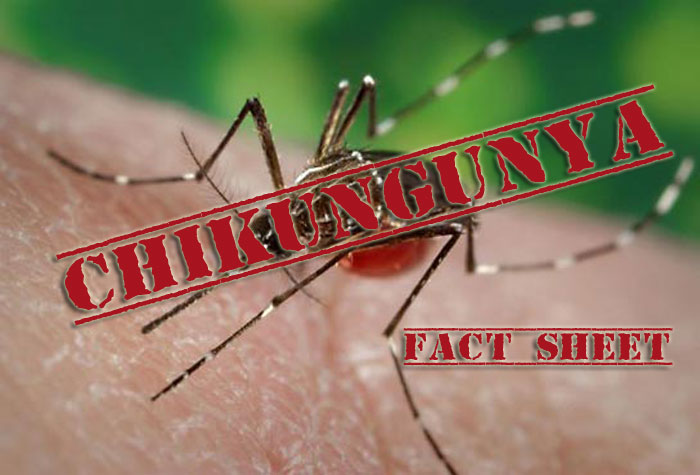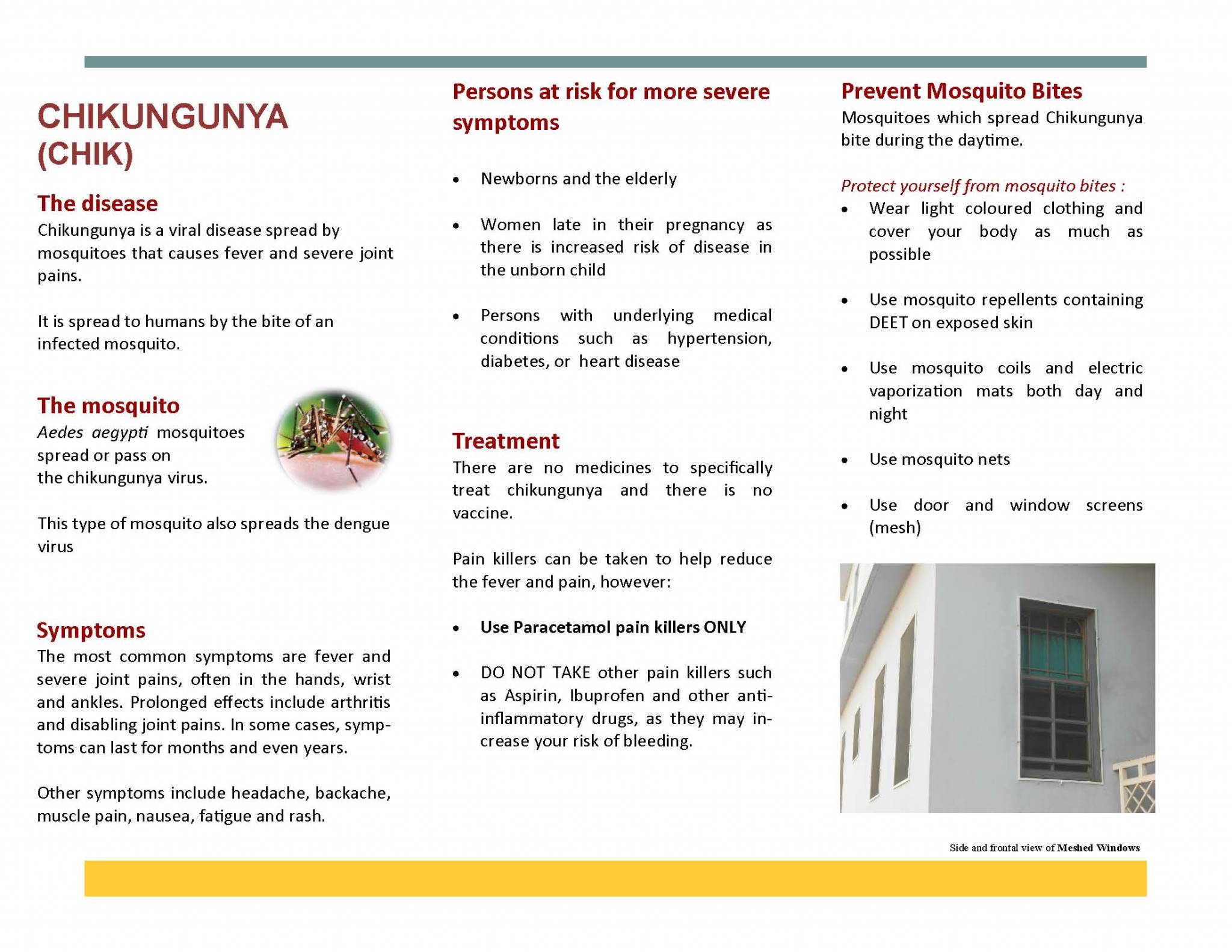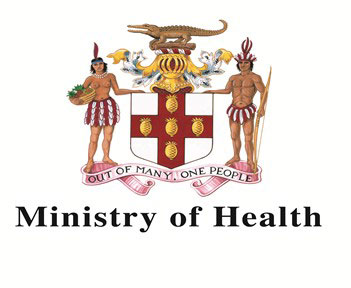Chikungunya Fact Sheet
The Full Story
The disease Chikungunya is a viral disease spread by mosquitoes that causes fever and severe joint pains. It is spread to humans by the bite of an infected mosquito.
The mosquito
Aedes aegypti mosquitoes spread or pass on the chikungunya virus. This type of mosquito also spreads the dengue virus.
Messages from the Ministry of Health on Chikungunya
Symptoms
The most common symptoms are fever and severe joint pains, often in the hands, wrist and ankles. Prolonged effects include arthritis and disabling joint pains. In some cases, symptoms can last for months and even years.
Other symptoms include headache, backache, muscle pain, nausea, fatigue and rash.
If you suspect that you have been infected, please contact your doctor, the nearest medical centre or the Ministry of Health toll free 1-888-663-5683.
Persons at high risk for more severe symptoms
Newborns and the elderly
Women late in their pregnancy as there is increased risk of disease in the unborn child
Persons with underlying medical conditions such as hypertension, diabetes, or heart disease.
Treatment
There are no medicines to specifically treat chikungunya and there is no vaccine.
Pain killers can be taken to help reduce the fever and pain, however:
Use Paracetamol pain killers ONLY
DO NOT TAKE other pain killers such as Aspirin, Ibuprofen and other anti-inflammatory drugs, as they may increase your risk of bleeding.
Prevent Mosquito Bites
Mosquitoes which spread Chikungunya bite during the daytime.
Protect yourself from mosquito bites :
Wear light coloured clothing and cover your body as much as possible
Use mosquito repellents containing DEET on exposed skin
Use mosquito coils and electric vaporization mats both day and night
Use mosquito nets
Use door and window screens (mesh)
Prevent Mosquito Breeding
Mosquitoes live and breed in standing water in and around the home.
Do your part by preventing mosquito breeding:
Cover all drums, tanks, barrels and buckets that are used to store water
Get rid of all old tyres, tins, bottles, plastic containers, coconut shells and anything in which rain water settles
Cover trash containers to keep out rain water
Punch holes in the bottom of tins before placing them in the garbage
Keep flower pot saucers dry and avoid over-watering potted plants
Empty and scrub flower vases twice weekly
Empty and wash pets’ water containers twice weekly
Keep house plants in damp soil instead of water.
Visit your doctor or nearest Health Centre if you think you or a family member might have Chikungunya
For more information contact Ministry of Health
1-888-ONE-LOVE
(1-888-663-5683)
Download CHIKUNGUNYA (CHIK) Fact Sheet
Frequently Asked Questions: Chikungunya
Messages from the Ministry of Health on Chikungunya
News Releases




